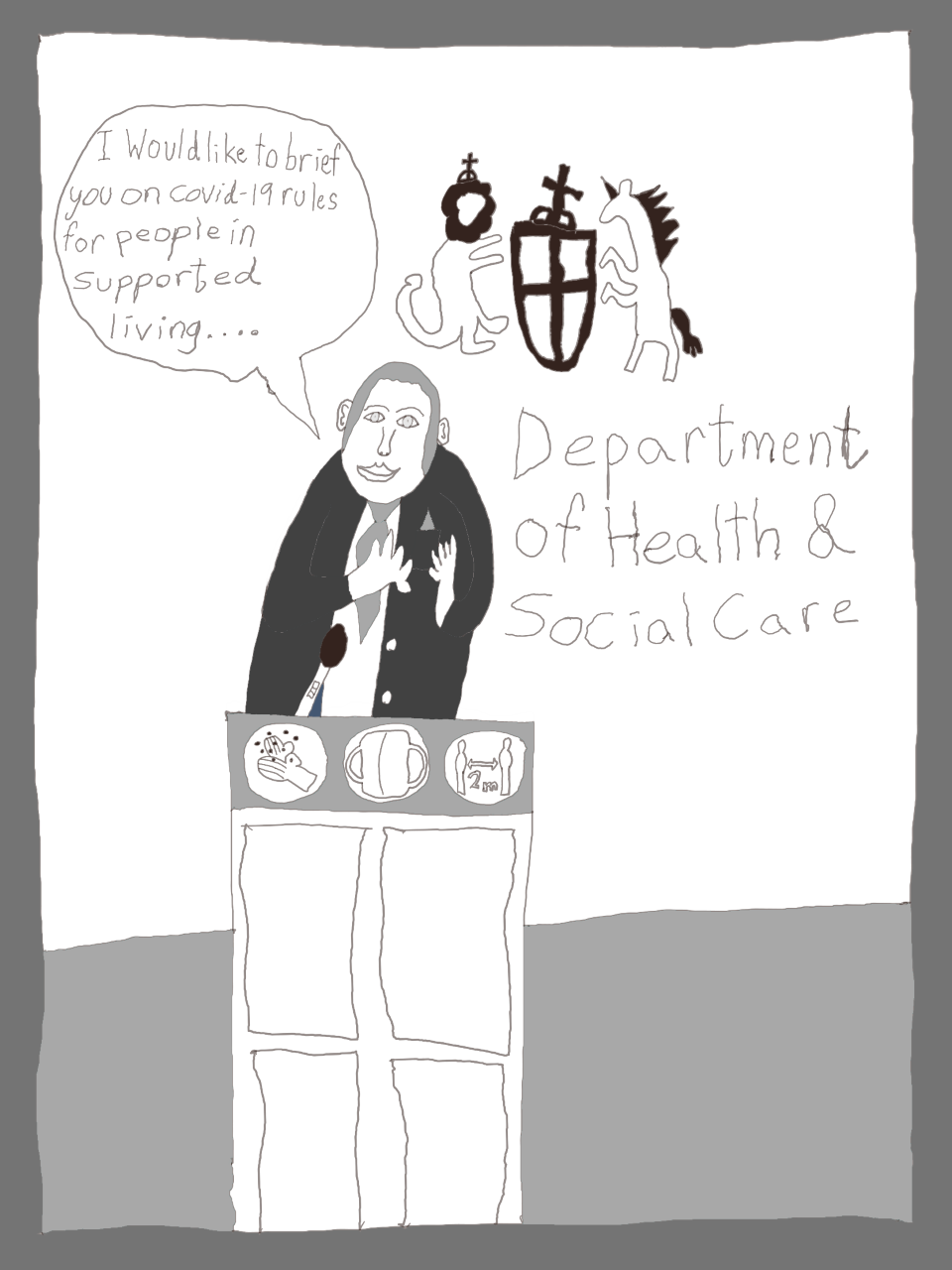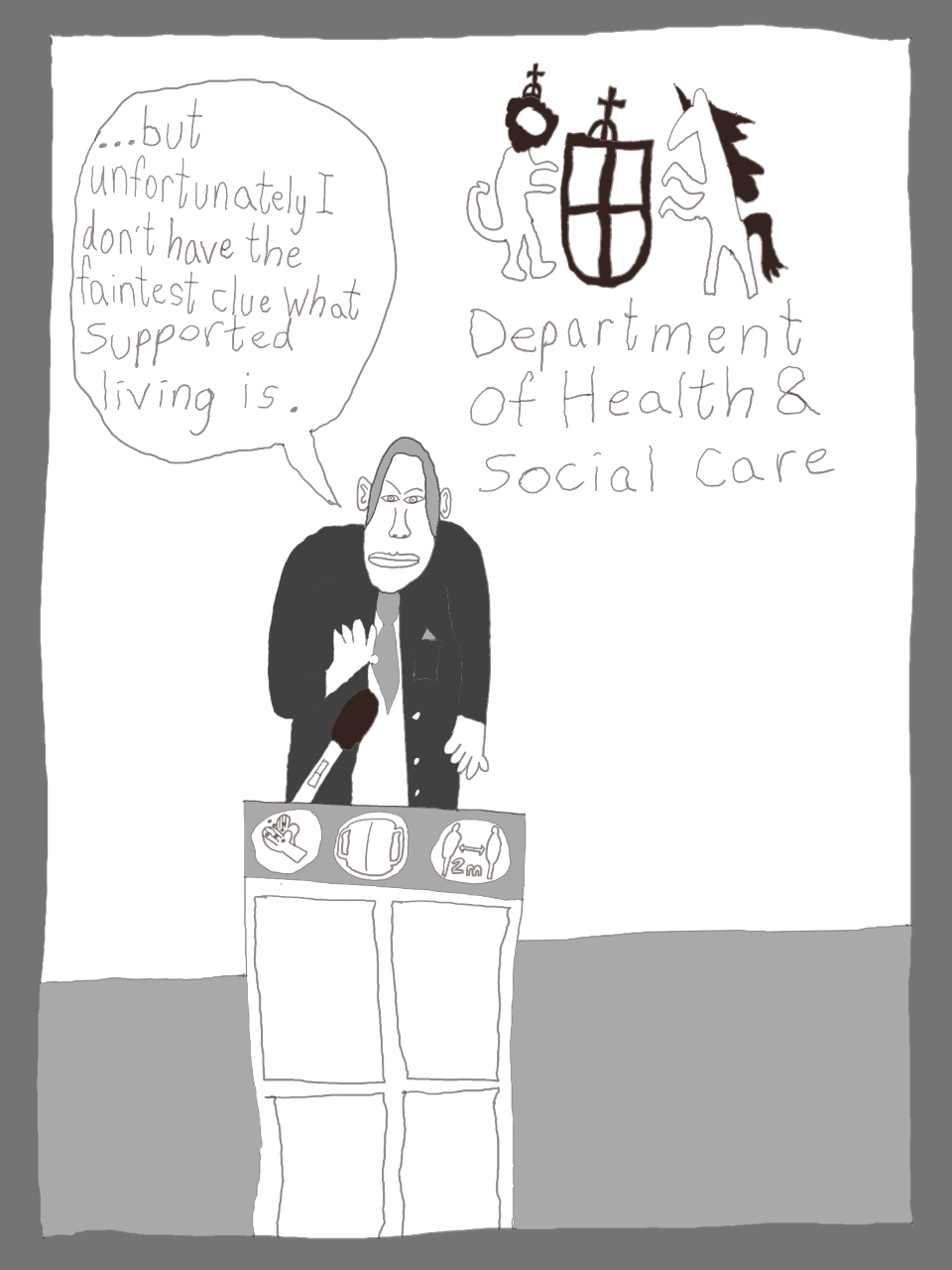Big money behind institutional thinking
There has been widespread criticism, not least in Community Living, of the continuing housing of people with learning disabilities by the NHS in institutional settings far from their families and communities, with the accompanying risk of abuse.
The government’s response has been the NHS Transforming Care policy. This envisages reducing places at these establishments by up to 50%, and replacing outdated facilities with “state of the art units”. This second part is very worrying. Recently, I was shocked to learn that approval has been given for a unit of 40 places next to Ashworth Hospital, a maximum security hospital, on Merseyside, costing £33 million.
It is described as being for “low security” need; there is already a larger, medium-secure facility on site. We have a build-up of facilities on one site, next to a maximum security psychiatric hospital, based on treatment through congregating people together, special architect designed buildings and use of technology. That is what is meant by state of the art. I call it institutional.
My idea of state of the art would be housing people in their own homes in their local community close to their families, with whatever support they require. This was the recommendation of the 2007 Mansell report on care of people with difficult behaviour. This report, and the direction of policy and philosophy in learning disability services for the last 50 years, has been totally ignored in the planning of this sort of service.
Capital expenditure of £33 million for 40 people works out at £825,000 per person. What fantastic community resources could be bought for that. I’m afraid institutional thinking is still with us, with large sums of money being thrown at it. My predictions are continuing isolation of people, distress to families and possible recurring incidents of abuse.
Paul Williams
Trowbridge, Wiltshire
Pandemic mental health support
Learning Disability England has been bringing our members and partners together during the pandemic to help people stay safe, well and connected.
More than 40% of people with learning disabilities have had issues with their mental health during the pandemic and we have been working with the Foundation for People with Learning Disabilities to deliver Pass-it-Online mental health training, funded through the government’s £750 million charity support package.
Trainers with learning disabilities have been paid to deliver workshops around the country as part of the Pass It On project, which is for people with learning disabilities. The sessions look at what mental health is, the five ways to wellbeing and making plans. They focus on all of the practical things people can do to stay happy and healthy.
You can find out more about this project at https://tinyurl.com/y2st635f
Lisa Watchorn
Communications Lead, Learning Disability
England, Birmingham
Covid truths need public attention
A number of recent reports are starting to describe the full impact of coronavirus on people with learning disabilities in the UK.
Public Health England published Deaths of People Identified as Having Learning Disabilities with Covid-19 in England in the Spring of 2020 in November (https://tinyurl. com/y2lj93p9). This suggests that the death rates of adults with learning disabilities rose by a higher margin than those of adults in all age groups. Their death rates are estimated to be 6.3 times higher than those of the general population.
In October, the Equality and Human Rights Commission published parliamentary briefings on the impact of Covid-19 on equality and human rights in residential care in both England and Wales (https://tinyurl.com/y22tuttv). These reports cover all types of residential care, including settings for people with learning disabilities, and draw attention to issues in admissions and testing, PPE, withdrawal of care and restrictions on visits.
Finally, Professor Chris Hatton of Manchester Metropolitan University has drawn attention in his excellent blog to the problems posed to those with learning disabilities as a result of priority for the proposed vaccination roll-out being given by age (https://tinyurl.com/y42r6mha). Each of these reports suggests that the needs of people with learning disabilities have gone unrecognised because of either a failure to see them as a priority group or a focus on the needs of the older population at the expense of others.
Self-advocates, advocates, professionals, families and any other supporters should do everything they can to get this information into the public domain by contacting their MP and local councillors, making representation to their local health representatives and spreading the word to friends and contacts.
Samantha Beckett
Northumberland
Meader’s View





